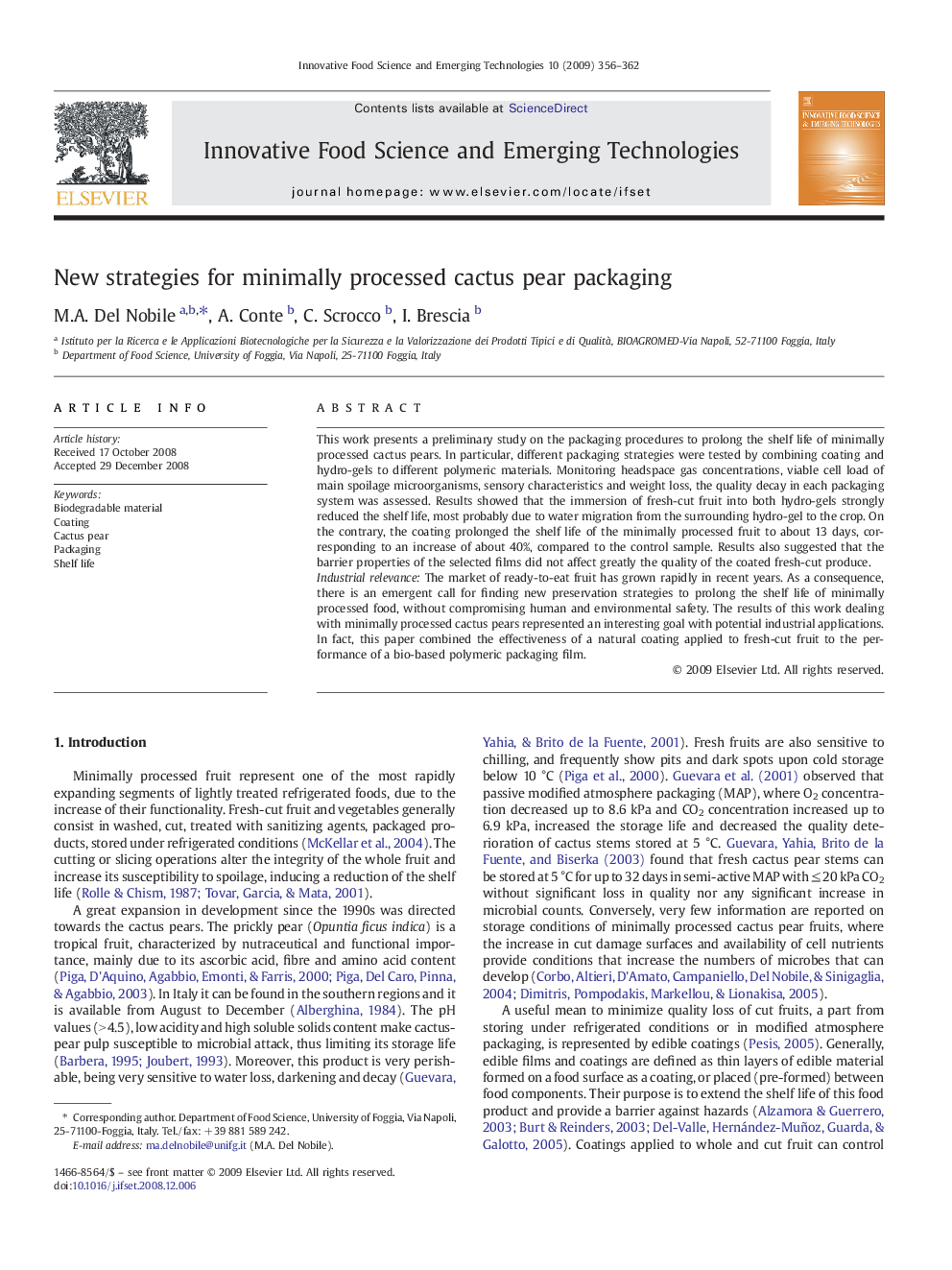| Article ID | Journal | Published Year | Pages | File Type |
|---|---|---|---|---|
| 2087198 | Innovative Food Science & Emerging Technologies | 2009 | 7 Pages |
This work presents a preliminary study on the packaging procedures to prolong the shelf life of minimally processed cactus pears. In particular, different packaging strategies were tested by combining coating and hydro-gels to different polymeric materials. Monitoring headspace gas concentrations, viable cell load of main spoilage microorganisms, sensory characteristics and weight loss, the quality decay in each packaging system was assessed. Results showed that the immersion of fresh-cut fruit into both hydro-gels strongly reduced the shelf life, most probably due to water migration from the surrounding hydro-gel to the crop. On the contrary, the coating prolonged the shelf life of the minimally processed fruit to about 13 days, corresponding to an increase of about 40%, compared to the control sample. Results also suggested that the barrier properties of the selected films did not affect greatly the quality of the coated fresh-cut produce.Industrial relevanceThe market of ready-to-eat fruit has grown rapidly in recent years. As a consequence, there is an emergent call for finding new preservation strategies to prolong the shelf life of minimally processed food, without compromising human and environmental safety. The results of this work dealing with minimally processed cactus pears represented an interesting goal with potential industrial applications. In fact, this paper combined the effectiveness of a natural coating applied to fresh-cut fruit to the performance of a bio-based polymeric packaging film.
